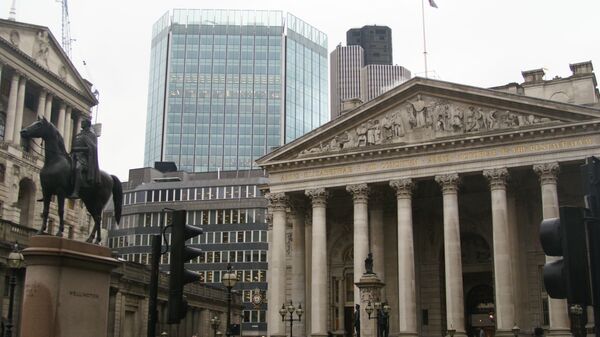The UK's FTSE 100 opened at 5,929.15, up 129 points, on early Monday after the UK government announced eased lockdown measures last week.
Higher trading activity has been boosted by numerous factors, including a rise in crude oil prices to around $32 per barrel and jump in gold to $1729 per ounce.
— Jasper Lawler (@jasperlawler) May 15, 2020
High demand in precious metals has fuelled a 7 percent rise for mining company Fresnillo, with gold mining firm Hochschild jumping around 15 percent amid resumed activity in Peru, Proactive Investors reported on Monday.
The positive developments follow London's intense Brexit negotiations with Brussels, namely after UK chief Brexit negotiator David Frost threatened to exit on no-deal terms over fishing rights, according to reports.
But the gains come days after US Federal Reserve chairman Jay Powell warned in an interview that US recovery may last beyond 2021 and would require a vaccine.
— Federal Reserve (@federalreserve) May 17, 2020
“The Fed is normally too optimistic in its forecasts so the outlook feels bleak,” Jasper Lawler, head of research at London Capital Group, said as quoted by Proactive.
“Still, warm weather is encouraging countries to continue exiting lockdown. If the flu season is anything to go by, sunny skies reduce the odds of an imminent second wave,” Mr Lawler added.
Downing Street also announced a deal between phamaceuticals giant AstraZeneca and Oxford University to supply 30m COVID-19 vaccine doses by September, with Health Secretary Matt Hancock stating last week that the government was injecting a further £84m to fund the vaccine, which could be ready in the coming months.
— Currency Trading Group (CTG) $ (@group_ctg) May 18, 2020
But the pound declined further since 9 March, sliding to $1.19 USD and €1.08 EUR, hitting its weakest level since 1985, the BBC reported on Monday.
“There is a synchronised rush for dollars that has caught most companies, governments and traders on the hop", Neil Wilson chief market analyst for Markets.com told the BBC, adding that “the euro has developed certain safe haven characteristics. Sterling is, on the other hand, a bit of a proxy for risk.”



